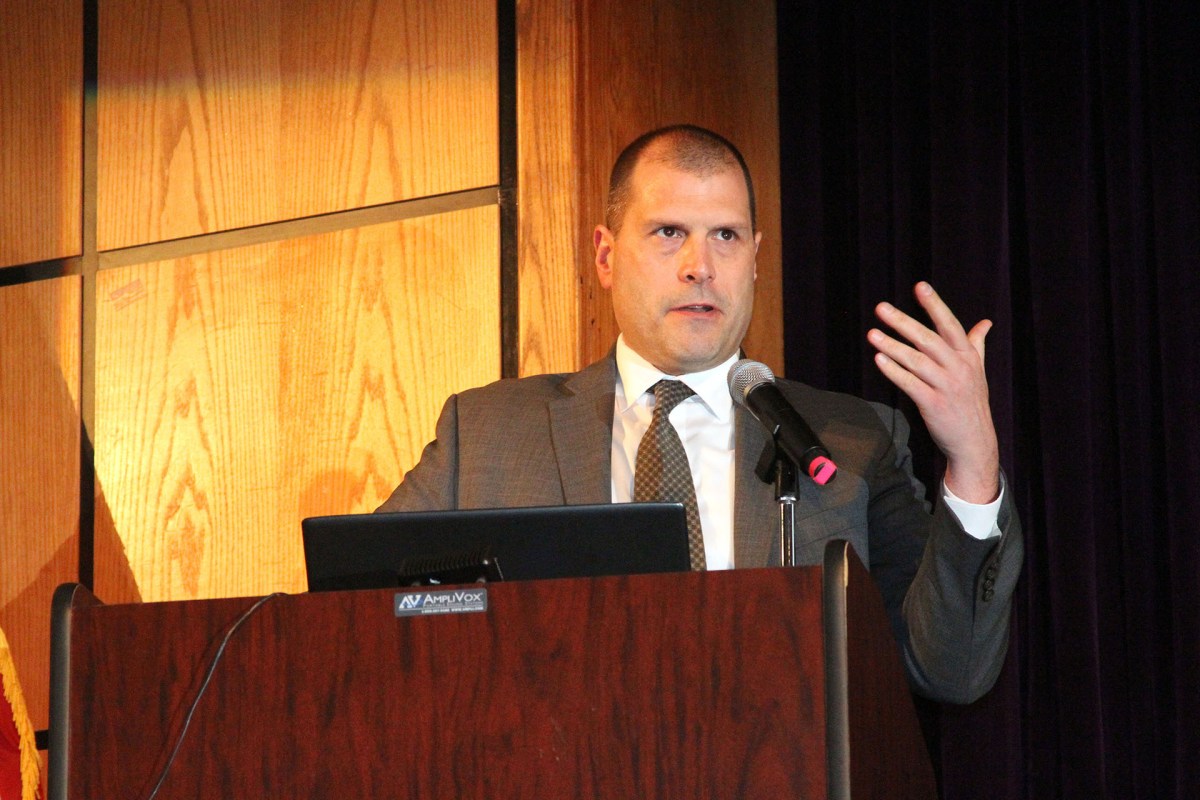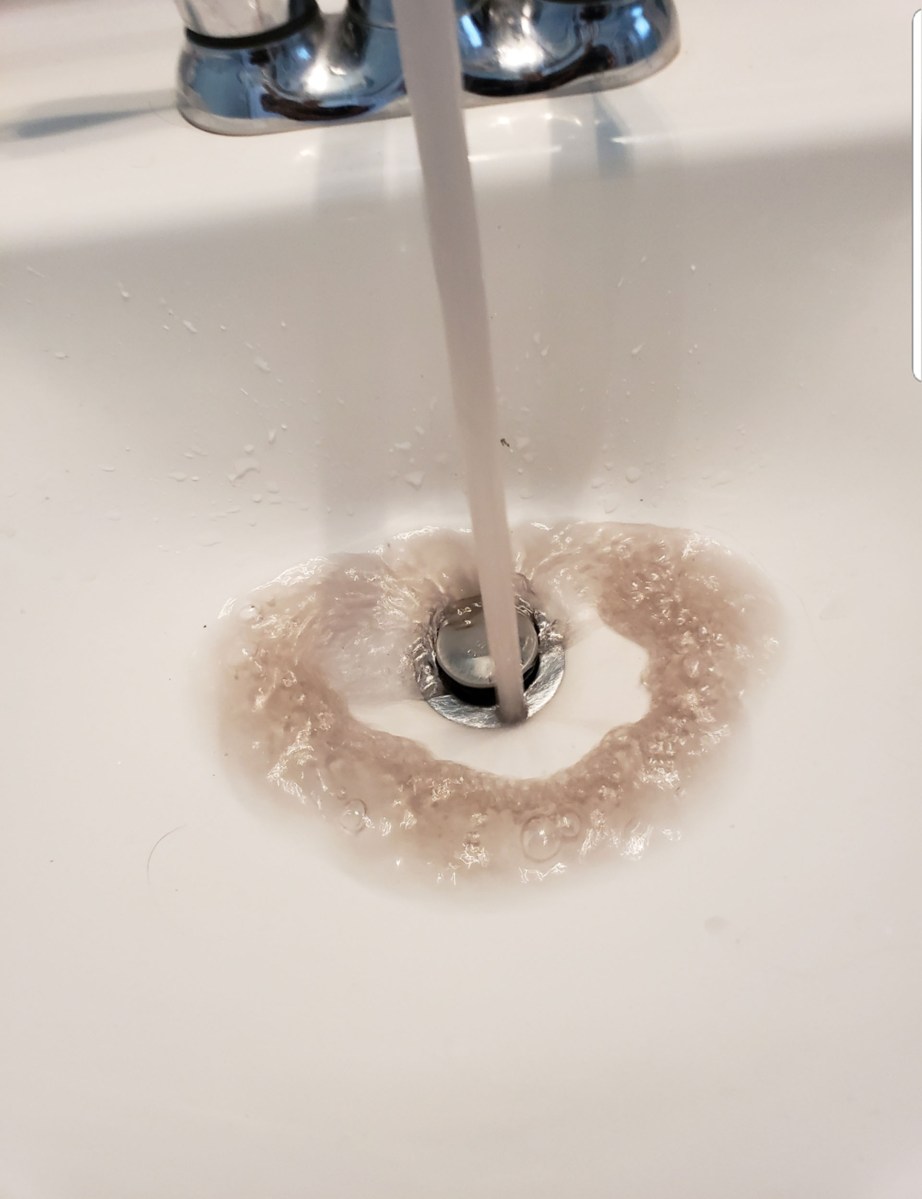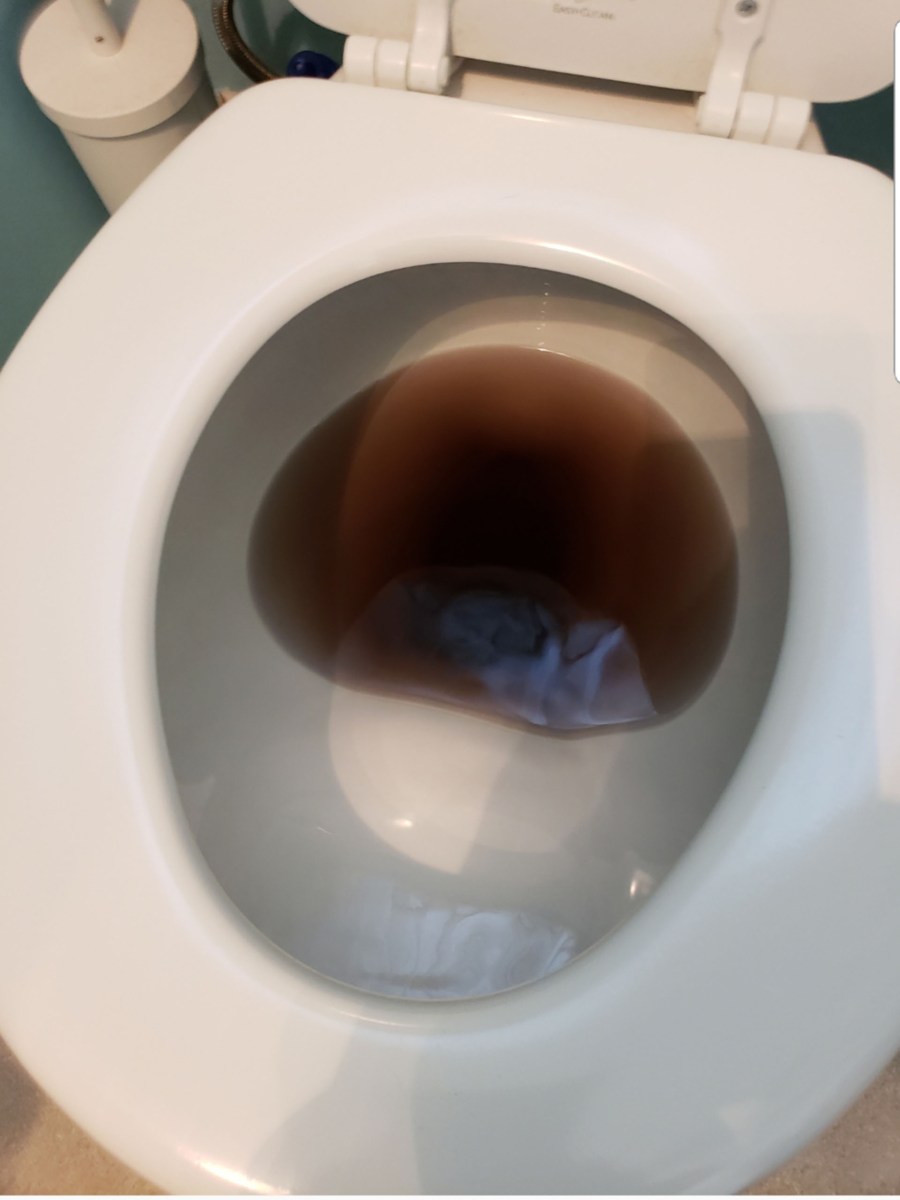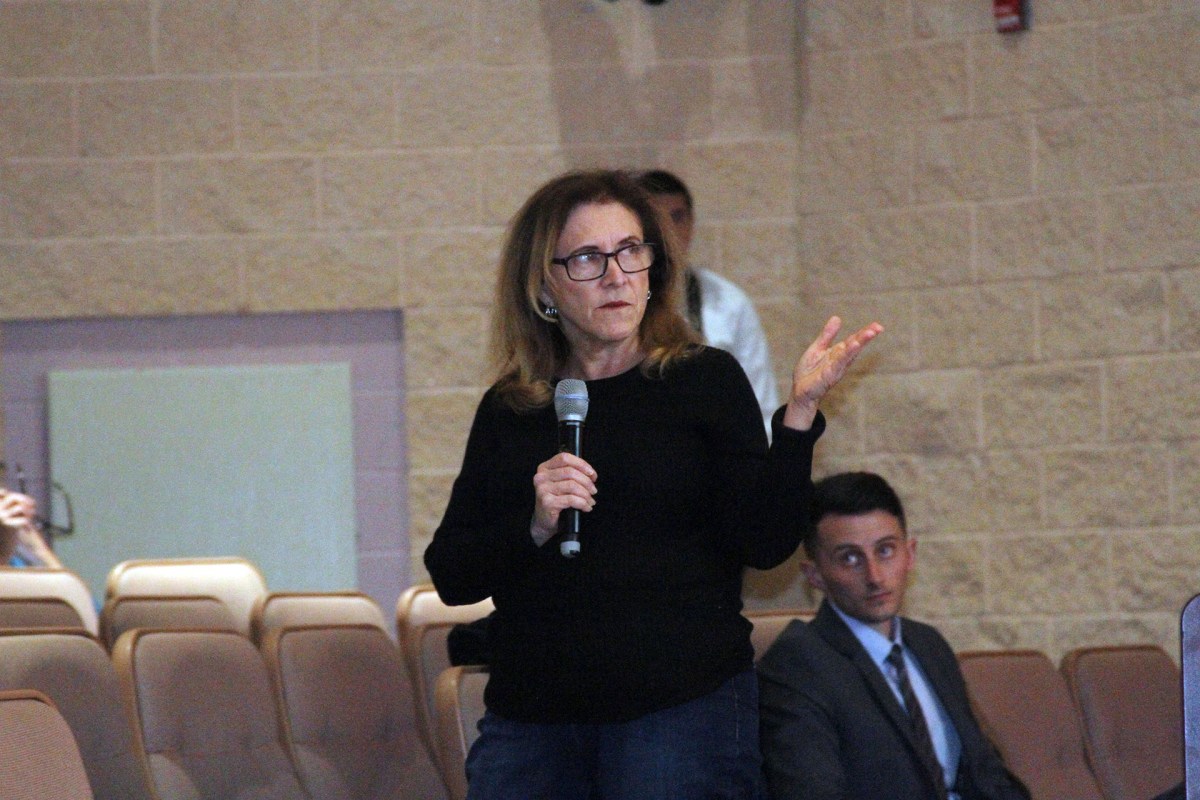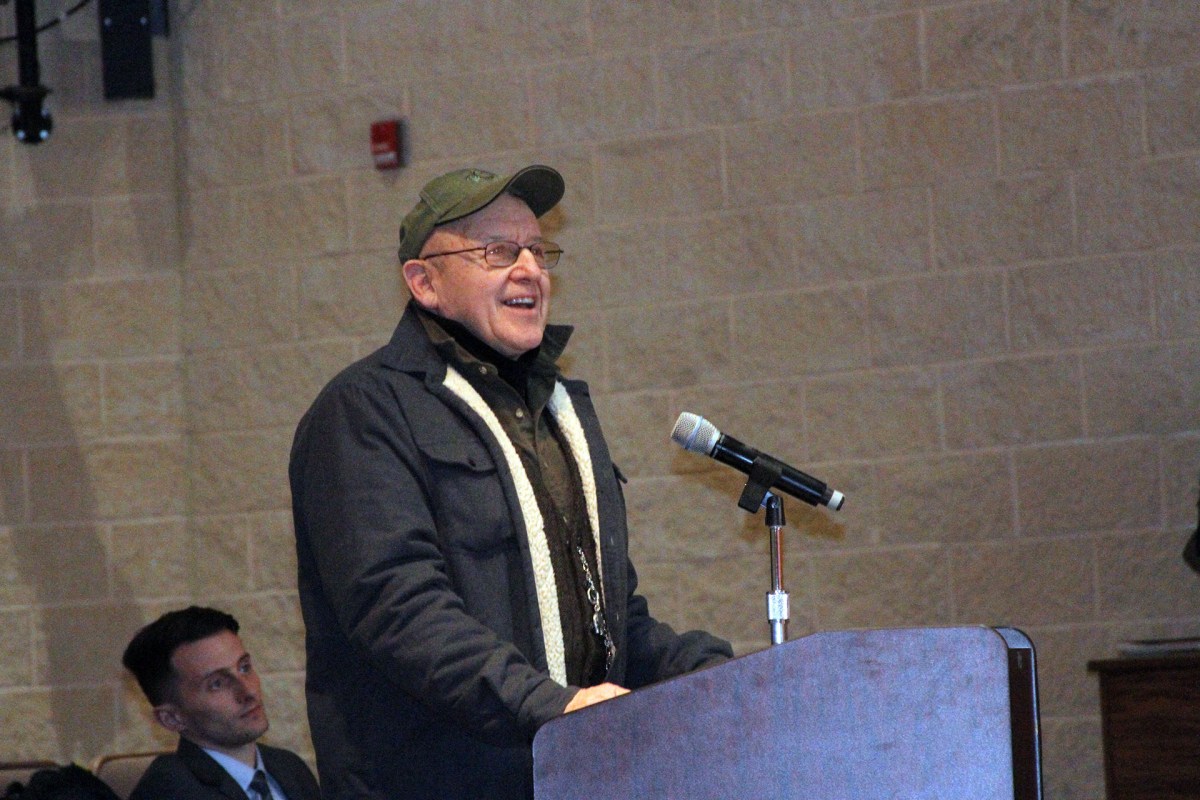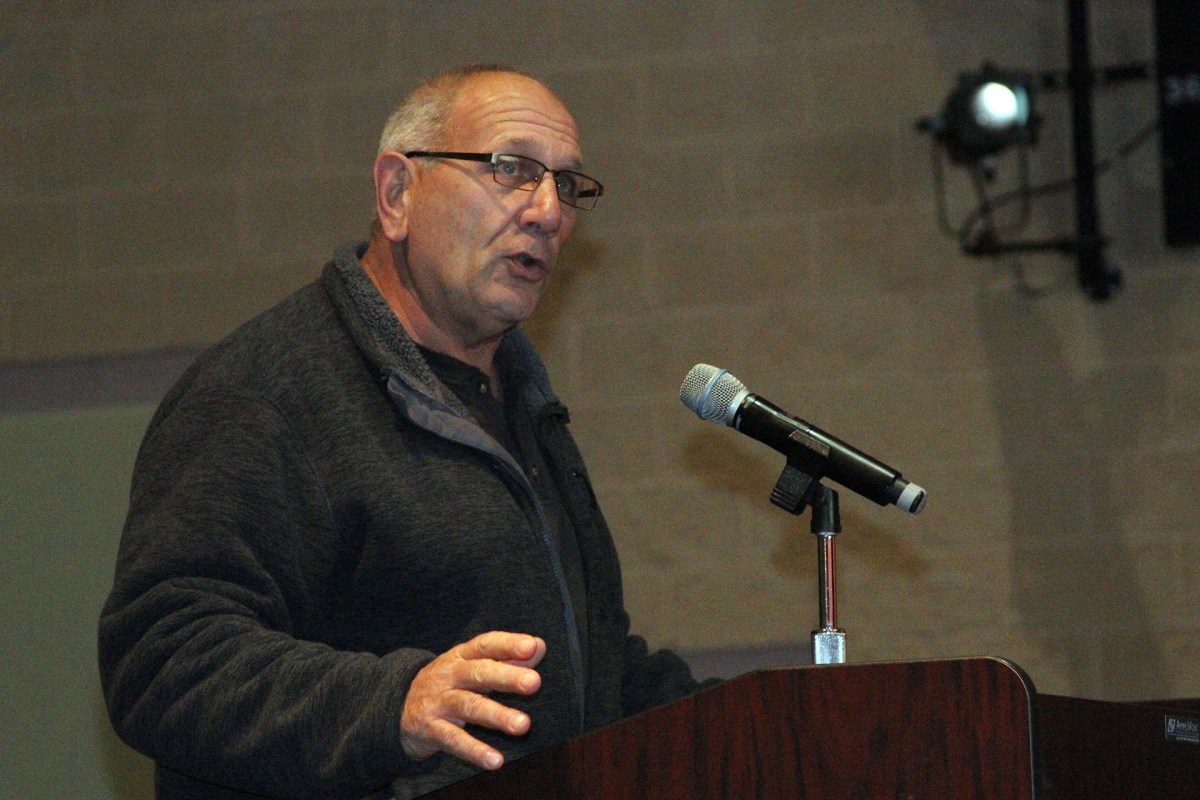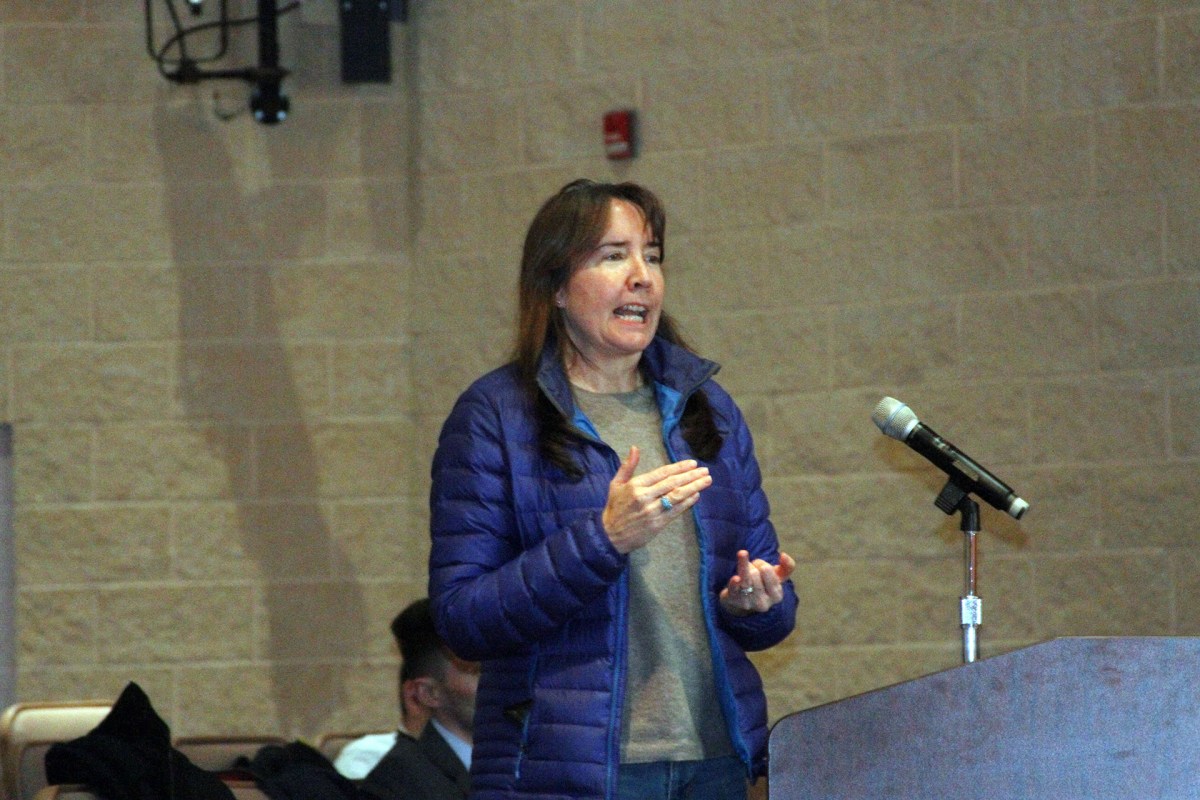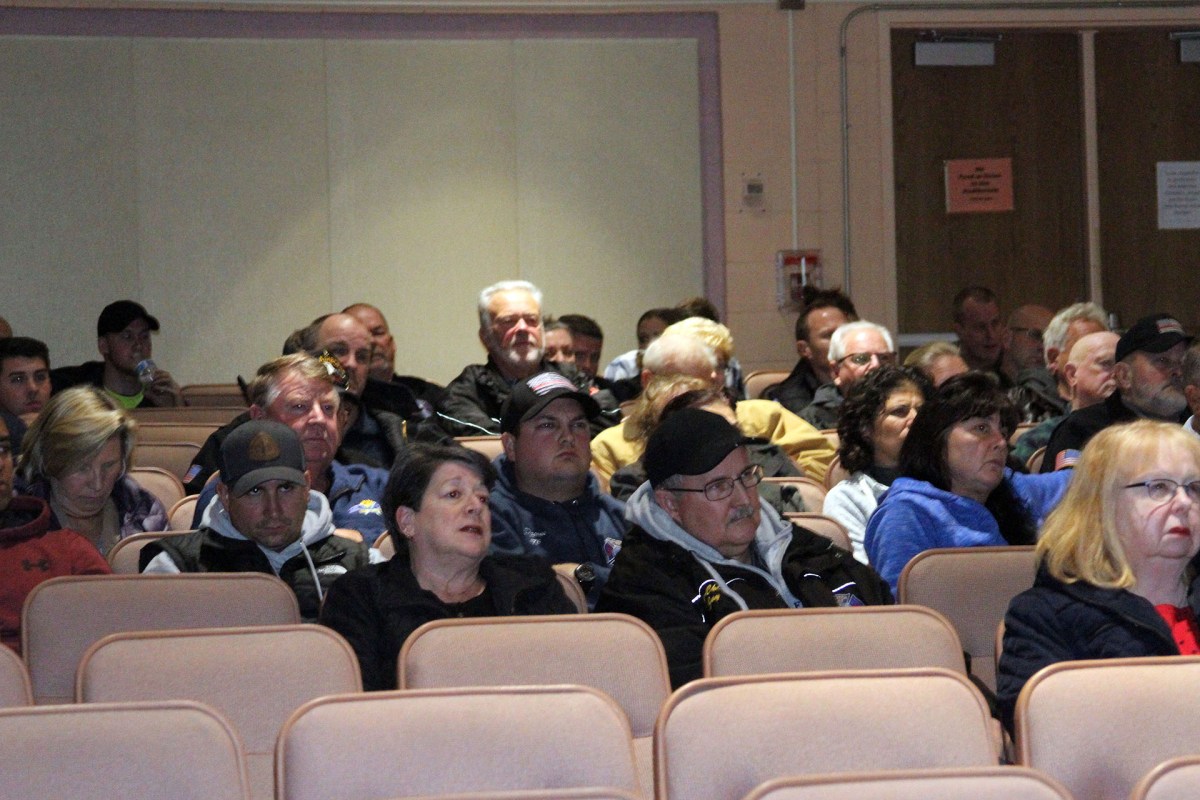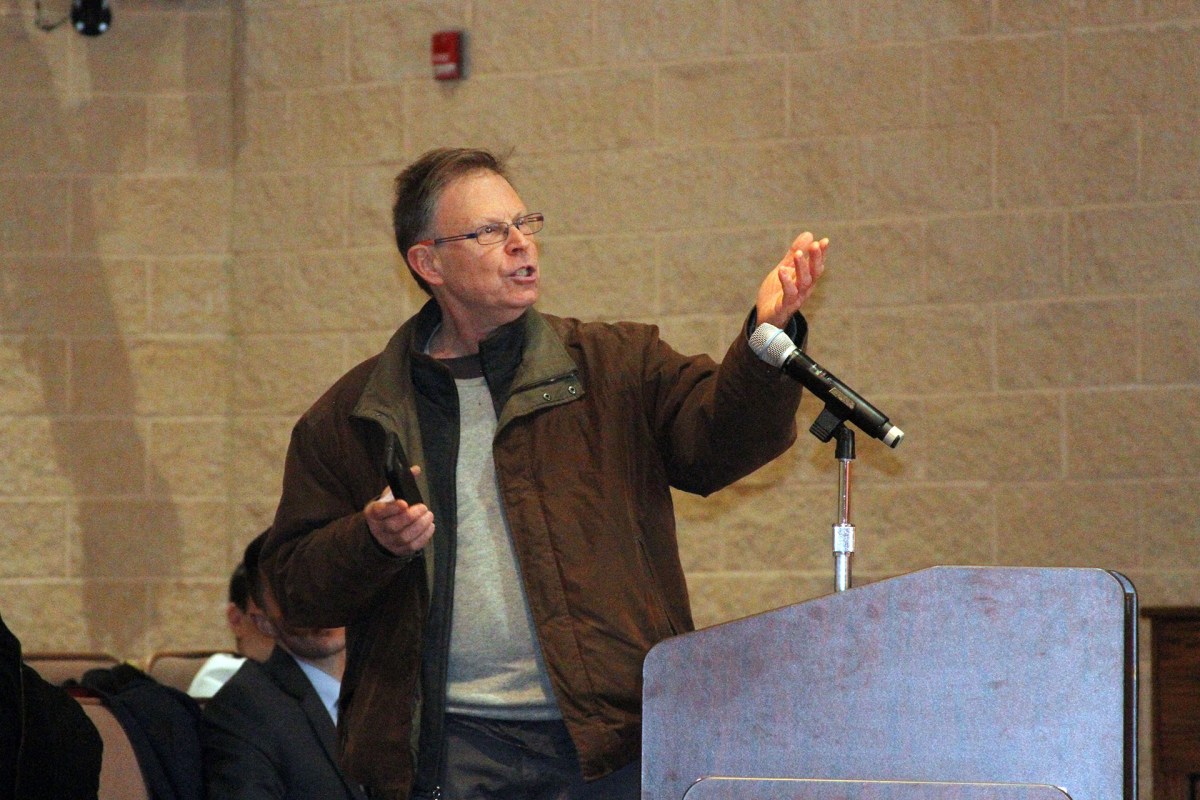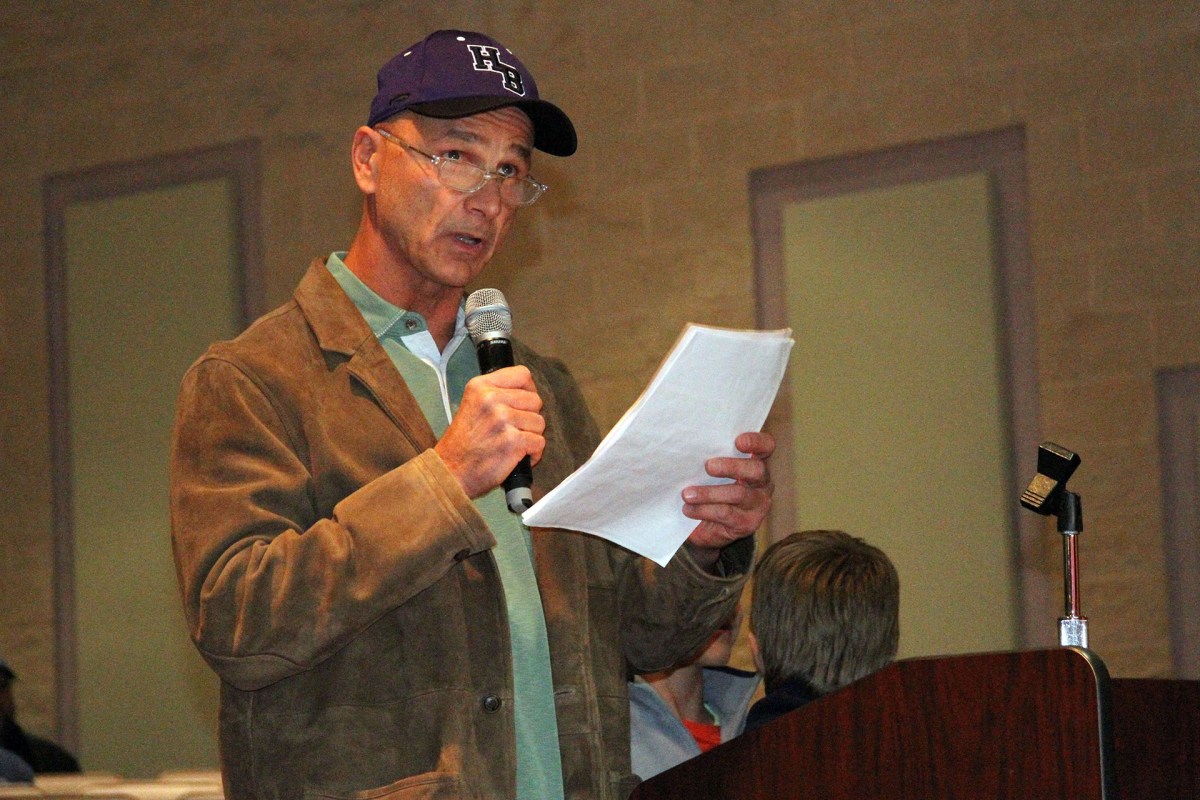Water Management Debate Heats Up
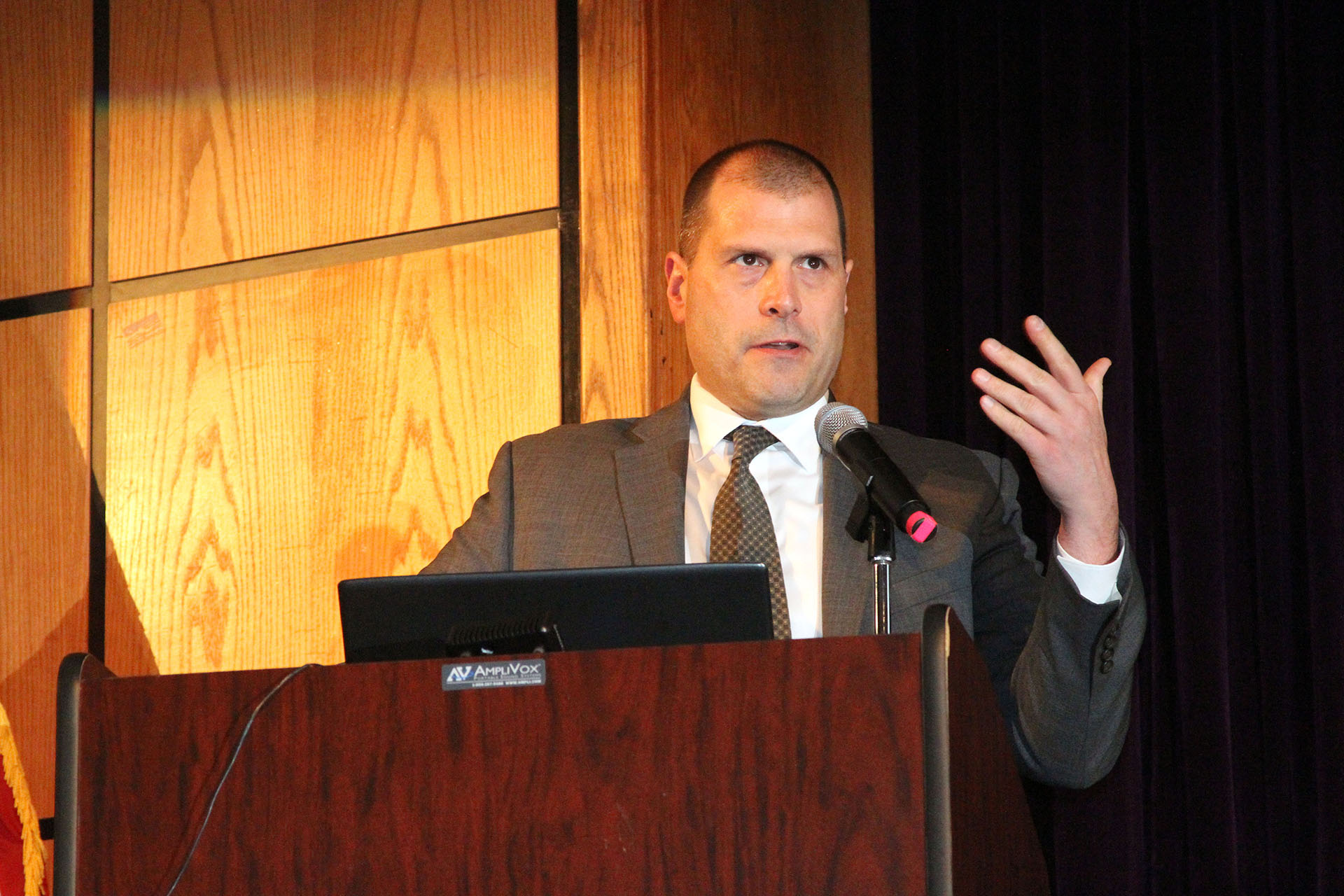
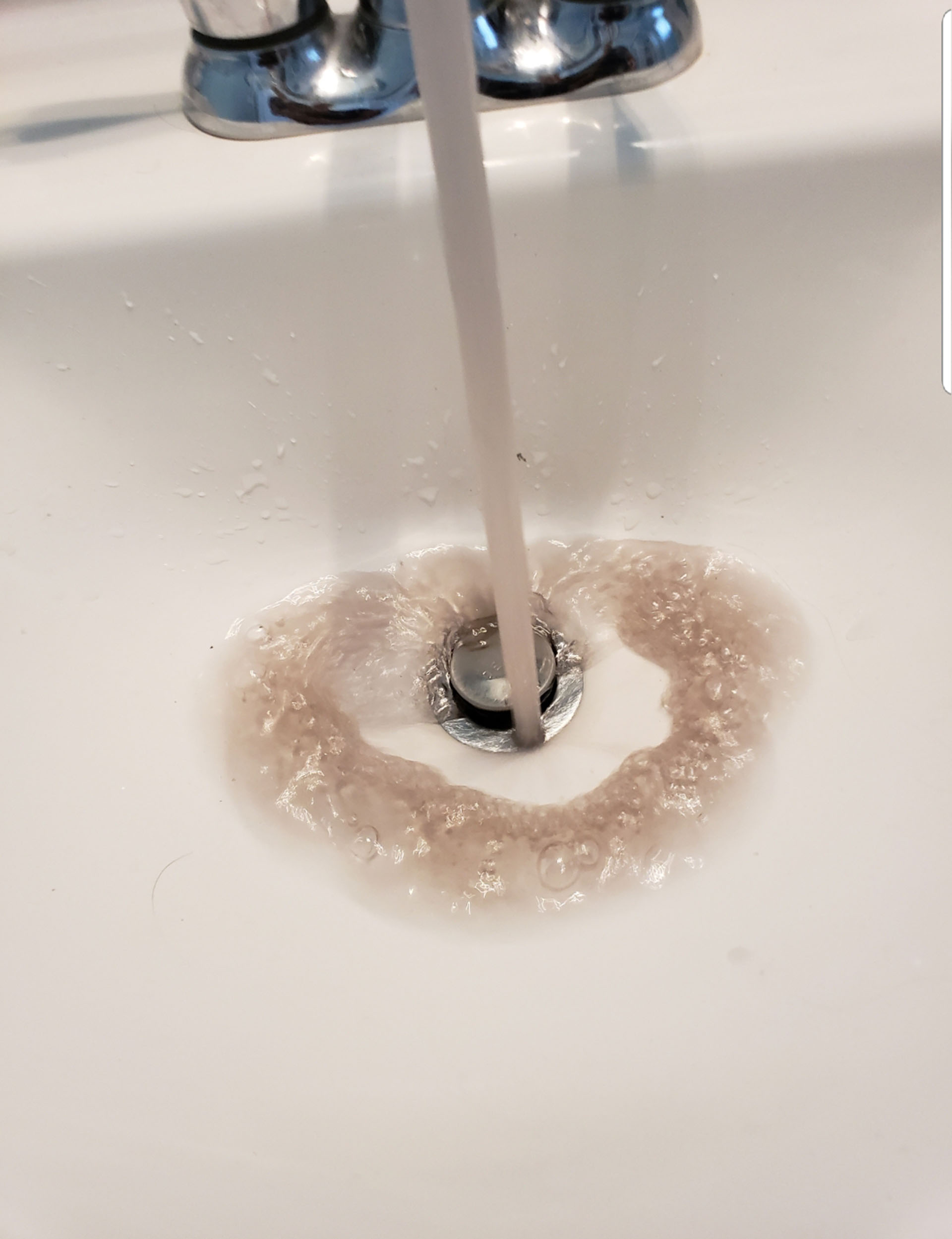
Keep the Hampton Bays Water District. That’s what many angry residents told the Southampton Town Board at a meeting on November 28 to discuss its possible merger with the Suffolk County Water Authority.
Hampton Bays resident Bill Hughes asked Supervisor Jay Schneiderman to let the people decide who will manage their water — echoing another speaker when he said, “Why should five people decide what we’re going to do? You may be the commissioners, but we own the water district.” His comment came after the supervisor read the results of a survey, which indicated 37 percent of those who filled it out were not at all satisfied with the water district, while 15 percent said they were completely satisfied. About 39 percent of those who filled out the survey supported the idea of SCWA taking over the day-to-day management in Hampton Bays, while 22 percent “strongly opposed” it.
Hughes, calling the survey a poor indicator of public opinion because only 300 of the hamlet’s 6400 residents took part, asked those in attendance at Hampton Bays High School to raise their hands if they were in favor of protecting the Hampton Bays Water District. Hands flew up in support. A portion of those were water district employees.
Workers relocating to SCWA’s Westhampton office is what bothered some residents, who wondered if response time would decrease. Water authority members responded by saying there are field workers out on calls across the water authority’s coverage area — from Melville to Montauk — ensuring the closest workers would respond to any call.
SCWA has promised a $6.1 million investment in infrastructure, but it’s not a gift. If the town were to decide to pull out of the agreement, which it can do at any time, it would be responsible for paying that money back. Schneiderman said the work, including recoating of water tanks to prevent them from developing leaks, and installing filter systems to remove iron and manganese, as well as the addition of booster pumps to create higher water pressure, would need to be done regardless, and the town would be paying extra to borrow the money if it turned over management of the district to SCWA. He estimated it would cost residents of the water district about $80 a year more in taxes over the 15-to-20-year life of a bond. He said the water district’s debt would go down over time with a merger, and all future improvement costs would be incurred by the entire SCWA customer base.
SCWA Skepticism
“SCWA didn’t come knocking on my door saying they wanted to take over. People are nervous, paying for the water but buying bottled water,” Schneiderman said. “I want people to know that they can walk up to their faucet and they can open it up and drink the water without fear. Or get into the bathtub, shower, and have no fear. Whether we go with these guys or not, we need to address these problems. People need to know their water is safe.”
While many said not wanting to relinquish control was a major reason for their opposition, others were skeptical of SCWA’s promises, or thought the same services could be supplied another way. Others asked why the town hasn’t been applying for more grants or done its own cost analysis on the infrastructure updates.
Resident Saul Ash, a geologist, thought the Hampton Bays Water District could simply find other labs to test for more chemicals. Schneiderman said it would be possible that another lab could be found, but he said it was doubtful it could find one that could turn results around in 48 hours, as SCWA can. Typically, it has taken the Hampton Bays Water District three to six weeks to obtain results sent to outside laboratories. In addition, Schneiderman said testing for some of the compounds being found in Hampton Bays water, such as perfluorooctanesulfonic acid and perfluorooctanoic acid, is also costly.
“There’s going to be more stringent regulations handed down by the Environmental Protection Agency or state to better protect the people in this room, and we have already been testing for many of these chemicals, and treating the problems,” said Jeff Szabo, chief executive officer for SCWA.
“It’s going to be exceedingly more difficult for the small water districts to function when combining high-level water quality with additional testing. We’re putting $2.5 million into an iron filtration system, which you needed yesterday. You need several million more dollars of work to elevate storage tanks, and that needs to get done today. We’re prepared to make those investments,” added Szabo.
No Comment?
Other attendees at the meeting asked why the rest of the town board has yet to make a single comment, including Councilwoman Julie Lofstad, who lives in Hampton Bays. Each of the members responded saying they’re hearing both sides and have yet to come to a decision.
Anthony DePalma, a past president of the Hampton Bays Civic Association, said he’s spoken with many parents who are “overwhelmingly in support” of a SCWA agreement. Raising a glass of brown, dirty water in a jar from this past summer, he said he was told for months the sample he showed was safe for him and his two young sons to drink.
“The source water assessment has rated most of the wells as having a high susceptibility to industrial solids and nitrates,” he said, reading from a pamphlet passed out to homes by the Hampton Bays Water District. “It’s not a matter of if something is going to happen, it’s when. And then what?” DePalma asked.
Shelley Borkoski, who helped form Hampton Bays Clean Water, sided with the handful of residents like Lauren Korte and Debbie Sarube who spoke out in fear of the safety of the hamlet’s drinking water.
“My doctor gives me advice, but sometimes I don’t know if it’s the best advice, but I like him,” Borkoski said. “So, I go to a different doctor. I get a second opinion. And this is the best of two opinions. I get the opinions of a new person with a newer apparatus, larger equipment, and the comfort of our old doctor by the employees who get to stay together, keep their jobs, and stay here local. To me it sounds like a win-win situation.”
Southampton Town had reached out to the Hampton Bays Water District, which said it was not prepared to make a presentation. The second of two meetings will be held December 18 at Hampton Bays High School at 7:30 PM.
desiree@indyeastend.com
